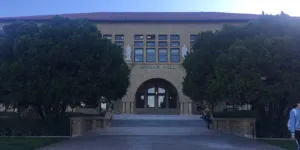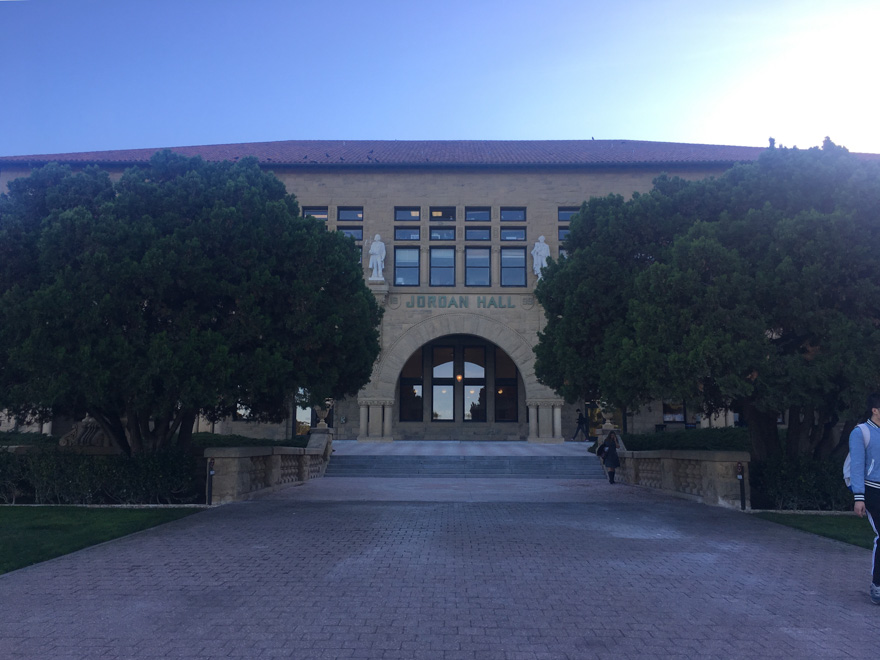Stanford’s popular psychology class, PSYCH 1: “Introduction to Psychology,” has long included an experiment participation component, but recently students have expressed concerns and confusion about the requirement and its value.

The course’s research requirement asks students to complete seven hours of online and in-person studies that contribute to research conducted by advanced – mostly graduate – students in the department. Students who fail to participate in seven hours of psychology experiments receive an incomplete in the class, unless they request an opt-out.
James Gross, psychology professor and director of the introduction to psychology program, believes the research requirement is an essential part of the class as it introduces students to psychology as an empirical and experimental subject.
“We, as a department, feel very strongly that a proper understanding of the field of psychology requires deep engagement with the scientific method,” said Gross, who teaches the class during fall quarter. “So this is one of the tools we have to help students experience science as it’s being built.”
Undergraduate psychology programs around the country include experimental research as a core component of their introductory classes. Gross pointed out that psychology courses at Duke University, the University of California, Berkeley, Ohio State University and the University of Michigan are in consensus about the pedagogical value of undergraduate research participation. Duke and Berkeley both require five hours of research, while Ohio State and Michigan require seven each.
Rated 3.9 out of five by students who have taken the class, the experimental component has generally been well received. However, some students have raised concerns about the running of the studies and their purpose.
Hannah Kukurugya ’21, a current student in the class, spoke highly of the teaching, but said that she experienced problems at an in-person study. Uninformed about what tasks she would have to perform in the study, she felt she gained little from the experience.
“I was definitely taken a little bit off-guard, because I believe I was not fully debriefed before participating in the study,” she said. “I felt like I couldn’t contribute … I most likely would not have signed up for it.”
While Kukurugya has had a better experience with the online studies, she worries that some students don’t approach them in a scientific manner. She disclosed that she has occasionally hurried through a study.
“Those studies can get long and sometimes, personally, I feel like [I’m] rushing through it to get it done, to get my credit hours,” Kukurugya said.
Likewise, Jojo Harber ’21, another student in the class, admits that she answered most of surveys carefully, but “for one of the studies, I went through it a little faster than I probably should have.”
Another student in the class, who wishes to remain anonymous, said that she sped through a three-hour online survey in 15 minutes, which could skew the data and undermine the reliability of the experiment’s results. Kukurugya also noted a discrepancy between credit hours and how long students are spending on the studies.
“There are so many people in the class who … [say], ‘Do this study, you get three credit hours and it only takes a half hour.’”
In response, Gross expressed regret that some students are not approaching the experimental research in a good-spirited, scientific manner.
“I’m very disappointed to hear that,” Gross said. “It’s not something that we can perfectly control … it’s possible to come into Stanford and really waste your time here, and it’s very sad to see that.”
But Gross added that only “a very small percentage” of people try to undermine the system and, in those cases, there are mechanisms in place to prevent them from distorting the results. For example, there are ways of checking how long participants spent on the online surveys. Completing a survey significantly faster than the estimated time would raise a red flag, and the participants’ data would likely be discarded.
“So, this person not only wasted their own time,” Gross said, “but they also didn’t contribute to the science.”
While Kukurugya finds value in contributing to studies that might find their way into college textbooks, she objected to the additional demands on students’ time.
“The students are forced to do these research hours, so that the people above – the graduate and masters students – can complete their thesis,” Kukurugya said. “Undergrads are great workhorses … [and] guinea pigs as well.”
The psychology department requires students who don’t wish to participate in the experimental research to write a five-page paper on the ethics of human experimentation instead. The date for declaring this option passed on Oct. 13 and the deadline for submitting the substitute paper, Nov. 3, is more than a month before the deadline for completing the seven hours of research. Although the research participation component is voluntary, Kukurugya isn’t convinced that writing a five-page research paper is a viable option for the busy college student.
“I do not think a five-page research paper is equivalent to seven hours of participating in studies,” Kukurugya said “I would think the paper’s worse. Things that are worth an hour in credit will only take a half hour to complete.”
But according to Gross, the five-page paper isn’t graded, nor does it require copious amounts of extra reading. Students wishing to opt out of the experimental component meet with the course coordinator, Jennifer Crosby, who advises students to spend no more time on the paper than they would on the experiments.
“[Crosby] makes it very clear what the spirit of this is – to take something they’re already interested in and they’ve already thought about and try to craft an argument,” Gross said.
While Gross informs students about the purpose and value of contributing to graduate research, both Kukurugya and Harber expressed a desire to know more about how their participation helps research.
“We hope, and I’m not sure if we do this perfectly every time, but we try very hard … to have a good debriefing process,” Gross said.
“They explain what you need to do and what the task will be,” Harber said. “But they don’t give you any insight in what big study it has to do with.”
The larger purpose of the experiments, according to the psychology department, is to engage undergraduates in the advancement of the subject, so that they can help to write the next chapter in psychology’s history.
“[Former] students in PSYCH 1 participated in studies that were written up, published and broadcast around the world and put into textbooks,” Gross said.
Harber said she recognizes that some students might see the experimentation requirement as “a waste of time” but that she has personally benefited from the opportunity.
“It’s been rewarding and fun to see psychology in the real world and what experiments they’re doing now that relate to the class,” Harber said.
Contact Yasmin Samrai at ysamrai ‘at’ stanford.edu.
